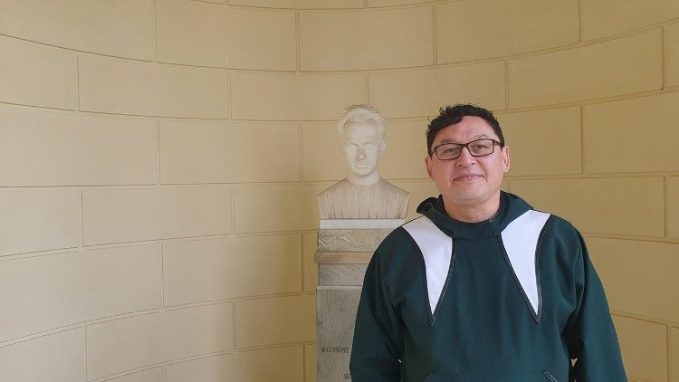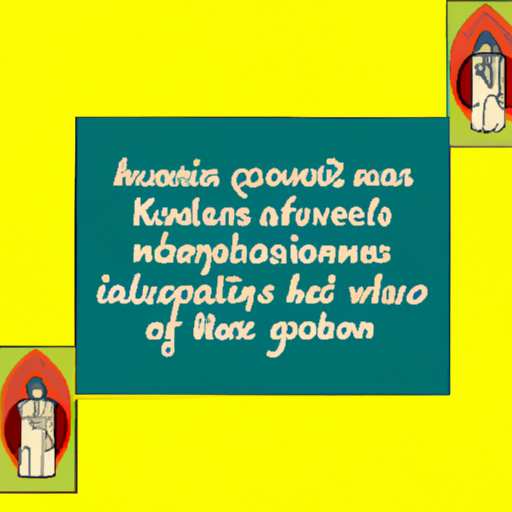‘Indigenous knowledge holders must be fairly recognized in co-led projects’
In an interview with Vatican News, Indigenous knowledge holder, Mr. Herb Nakimayak of Canada, shares best practices in his industry, thanks the Pope and Vatican for their closeness, but calls for proper recognition and acknowledgement of indigenous...


In an interview with Vatican News, Indigenous knowledge holder, Mr. Herb Nakimayak of Canada, shares best practices in his industry, thanks the Pope and Vatican for their closeness, but calls for proper recognition and acknowledgement of indigenous knowledge leaders in co-led projects with the scientific community.
By Deborah Castellano Lubov
“I think the wisdom of Indigenous Peoples here at the Vatican is being valued and respected…”
In an interview with Vatican News on the sidelines of a Vatican-supported conference on Indigenous Peoples, Indigenous representative from Canada, Mr. Herb Angik Nakimayak, offered this perspective.
Mr. Nakimayak is Chair of the Inuvialuit Fisheries Joint Management Committee and Vice President of the Inuit Circumpolar Council in Canada. He spoke at the workshop as the Arctic representative of the Arramat Project, which coordinates 150 projects globally.
Pope commends Indigenous Peoples at Vatican Conference
Pope Francis on Thursday addressed the two-day workshop, organized in the Vatican on March 14–15 by the Pontifical Academy of Sciences, on “Indigenous Peoples’ Knowledge and the Sciences: Combining knowledge and science on vulnerabilities and solutions for resilience.”
The conference has been exploring opportunities for cooperation between Indigenous Peoples and the science community on various key issues.
In his remarks, the Holy Father underscored the great need to preserve and value Indigenous expertise to address the climate and environmental crises. He encouraged a closer collaboration between Indigenous and scientific knowledge to address not only climate change, but also the loss of biodiversity and threats to food and health security.
Full respect needed for Indigenous knowledge holders
Recalling the Pope’s meeting with the group yesterday, and his having expressed his closeness to Indigenous Populations on several occasions, Vatican News asked how he perceives such episodes.
“The wisdom of Indigenous Peoples here at the Vatican,” Mr Nakimayak responded, “is being valued and respected.”
“Through the reconciliation process, it’s given us a solid foundation to ensure that it also ensures that we’re able to carry out the work that we’re doing now into the future. It’s a foundation of respect, and a foundation that is looking forward.”
“I’m very grateful. We — myself, as an Indigenous knowledge holder, and, as someone who manages research programs between scientists and indigenous knowledge holders –, want to ensure that respect is maintained through this work, that Indigenous knowledge holders are fully respected.”
He also acknowledged how important it is that Indigenous knowledge holders “are also recognized in papers that come out in co-led projects,” between them and members of the scientific community.
Highlighting that Indigenous knowledge holders are now co-leading and leading projects in his region, he expressed the hope to see this trend also take effect, globally.
Sr. Helen Alford: New avenues with Indigenous Peoples to face global challenges
In her opening remarks, Sister Helen Alford, OP, the President of the Pontifical Academy of Social Science, remarked, “We are encouraging discussions on multiple and diverse perspectives on life, value systems, and spirituality among Indigenous Peoples and among science-driven communities.” She said the conversations were drawing inspiration “from the complementarities and synergies between faith and science” championed by the Pontifical Academies.”
“Indigenous Peoples,” the PASS President underscored, have been able to thrive while living in harmony with nature, offering us all many insights for reducing the ecological footprint of non-Indigenous societies.”
With this spirit, Sister Alford expressed the Academies’ wish “to build bridges between the perspectives and knowledge systems of diverse Indigenous Peoples and the science communities” and “explore new avenues for solutions to global challenges, such as conflicts, environmental destruction, and poverty and inequity.”


















